Are you feeling the crunch of tight deadlines and project chaos? It's completely normal to need a little flexibility in your schedule, especially when managing multiple tasks. In this article, we'll explore effective ways to propose schedule adjustments that keep the team on track while accommodating individual needs. Let's dive in and discover how to communicate these changes smoothly!

Clarity and Conciseness
Adjusting project schedules can enhance team efficiency and meet deadlines more effectively. Clarity in communication, such as using specific dates and milestones, is crucial. Key stakeholders, like project managers and team leads, should be informed of changes through formal channels, ensuring that everyone understands the adjustments. Conciseness is essential to avoid confusion; using bullet points or numbered lists can improve clarity and make information easily digestible. Clear documentation of changes helps maintain accountability and transparency within the project framework, facilitating smoother operations as teams navigate the revised timeline.
Tone and Professionalism
Adjusting project schedules can significantly impact timelines and deliverables within a professional environment. Thoughtful planning allows teams to realign priorities and resource allocation effectively. For instance, if a project deadline needs to shift from April 15 to May 1 due to resource constraints, clear communication with stakeholders is essential. Notifying team members about the change, explaining the reasons behind it, and detailing the new milestones fosters transparency and maintains professionalism. Additionally, utilizing project management software, such as Asana or Trello, can assist in visualizing the updated timeline and tracking progress, ensuring everyone stays informed and engaged during the transition.
Specific Date and Time Adjustment
Project managers often need to propose schedule adjustments to ensure timely project completion. Commencing on October 15, 2023, current timelines require reevaluation due to unexpected delays in equipment delivery from external suppliers. Proposed adjustments involve shifting project milestones by two weeks, which aligns with revised delivery dates. For example, the initial phase of testing originally slated for November 5, 2023, would now occur on November 19, 2023. This proposed timeline modification aims to enhance overall workflow efficiency and meet final project deadlines set for December 30, 2023. Regular updates will ensure stakeholder engagement throughout the adjustment process.
Reason for Adjustment
Project adjustments may be necessary due to various unexpected circumstances, such as resource availability, stakeholder feedback, or changing market conditions. For instance, if there is a delay in obtaining critical materials, like steel for construction projects, the timeline may need extension. Budget constraints may also arise, leading to a reevaluation of expenses and timelines to ensure project viability. Additionally, feedback from key stakeholders, such as clients or project managers, can necessitate alterations to the schedule to align with new business goals. Each adjustment aims to optimize the workflow and ensure overall project success.
Impact and Benefits of Change
Proposing schedule adjustments for projects can significantly impact overall success and resource allocation. Effective communication with stakeholders, such as team members and project managers, is crucial. Involving key players in the conversation helps identify potential benefits, such as enhanced productivity, improved quality of deliverables, and alignment with stakeholder expectations. Adjustments often lead to resource optimization, ensuring that team members are not overburdened and maintain a healthy work-life balance. Furthermore, a revised schedule can accommodate unforeseen challenges, such as project delays or scope changes, allowing for a more flexible approach to achieving project goals while minimizing stress and potential burnout among the team.

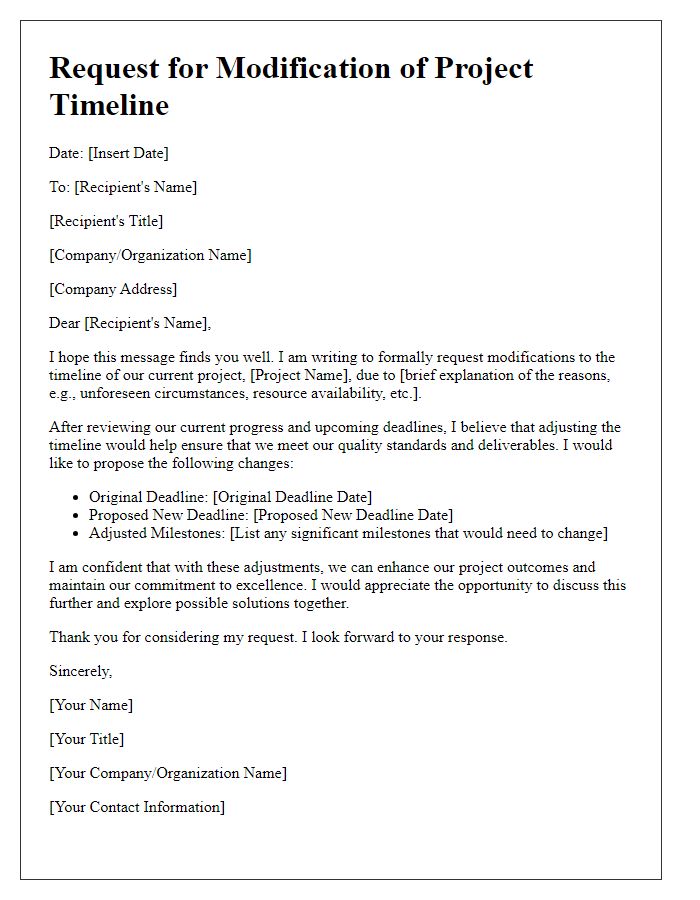
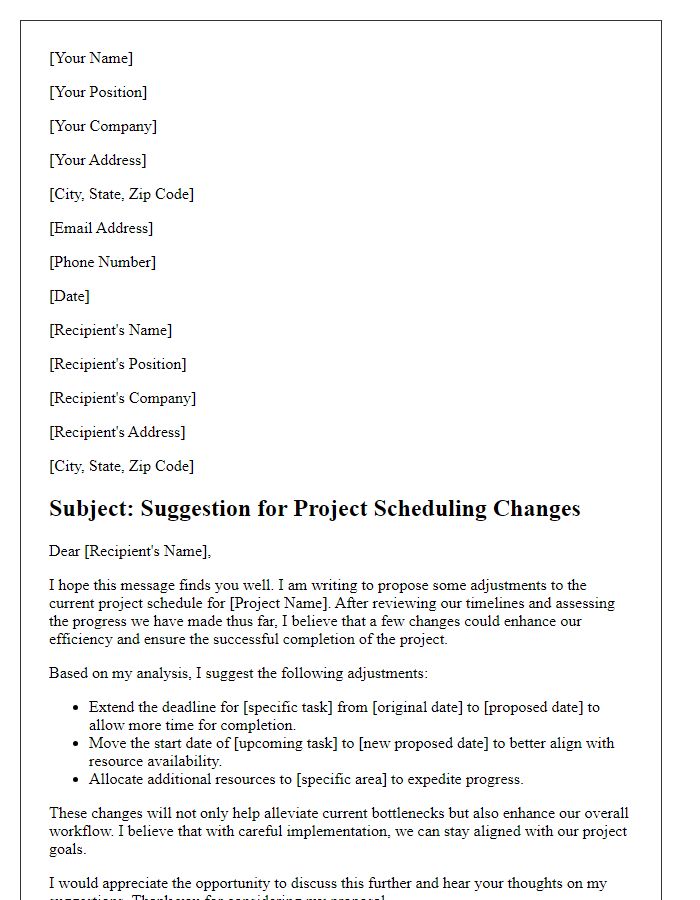
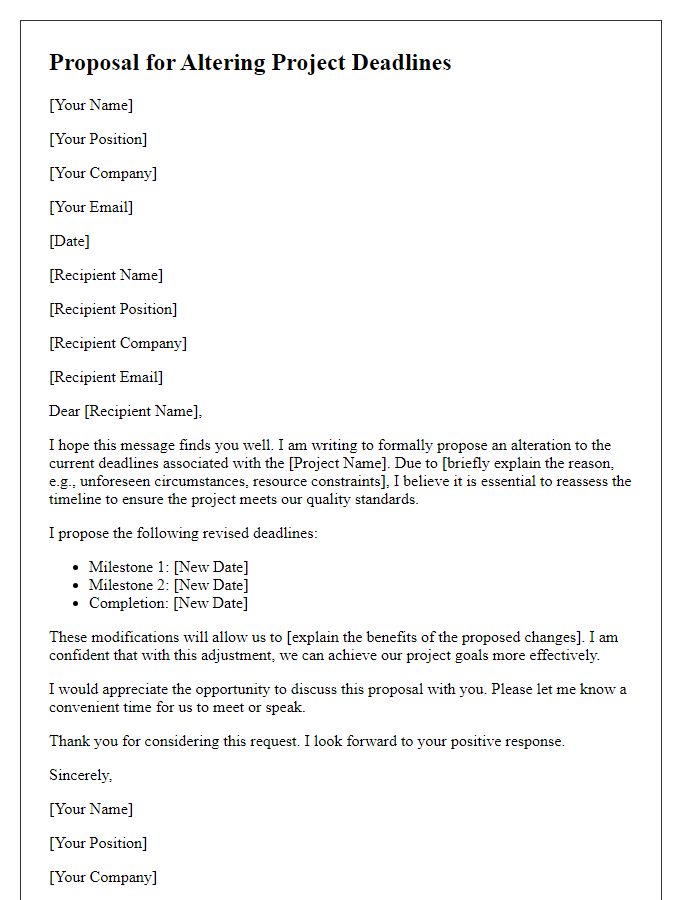
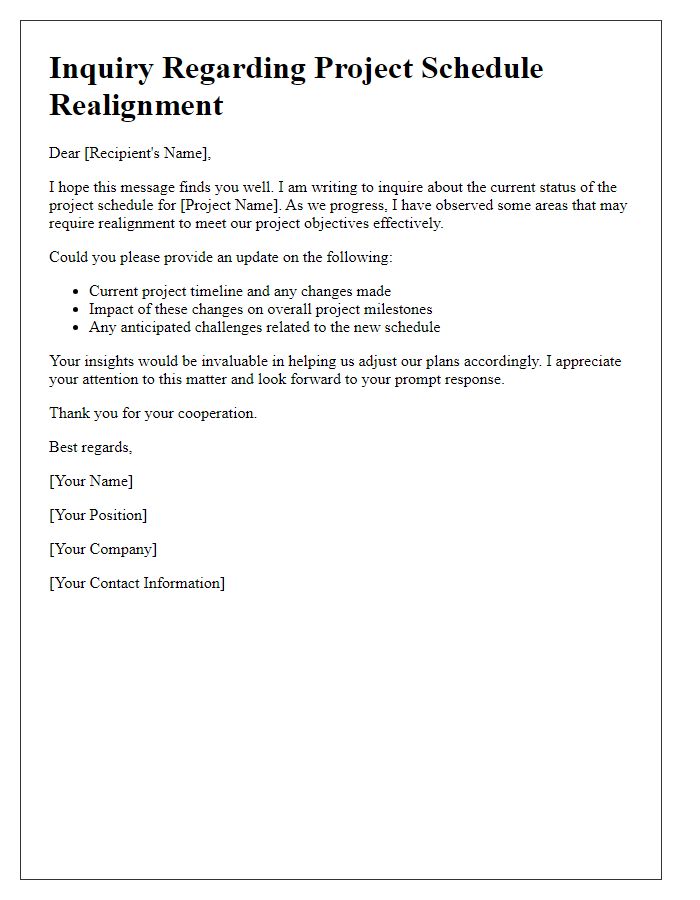
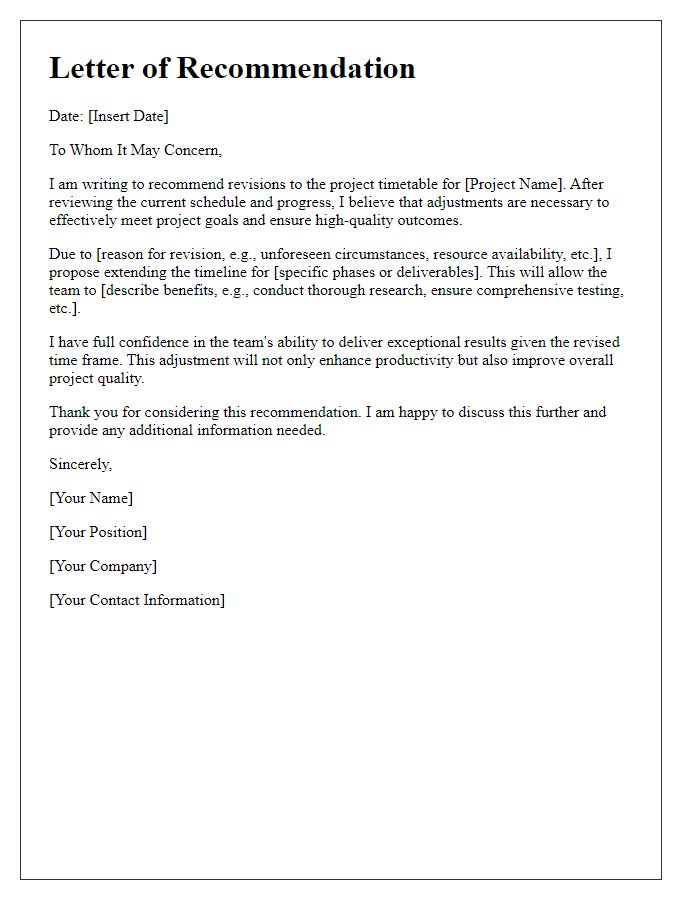
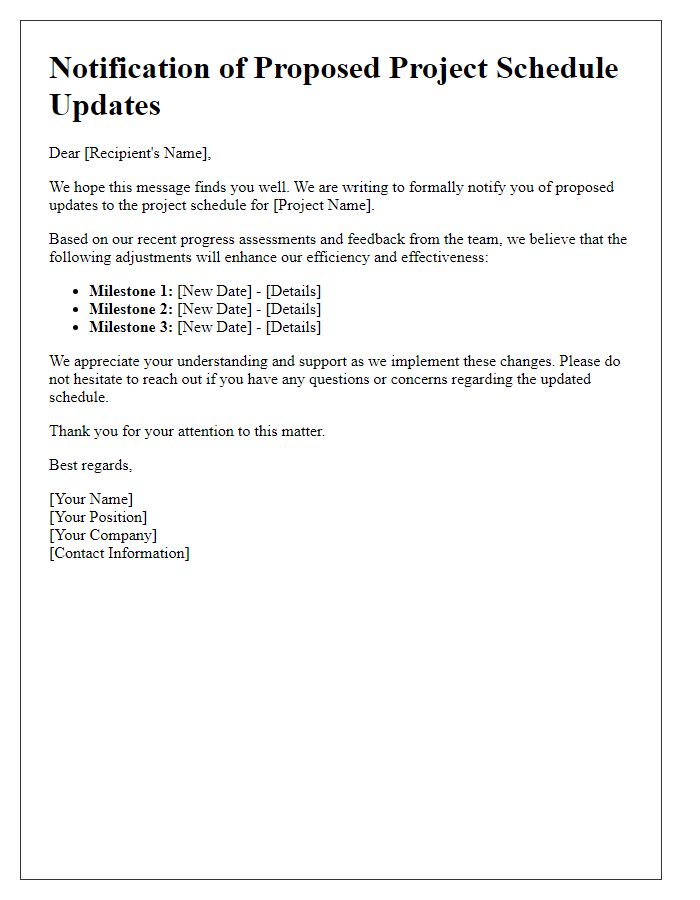
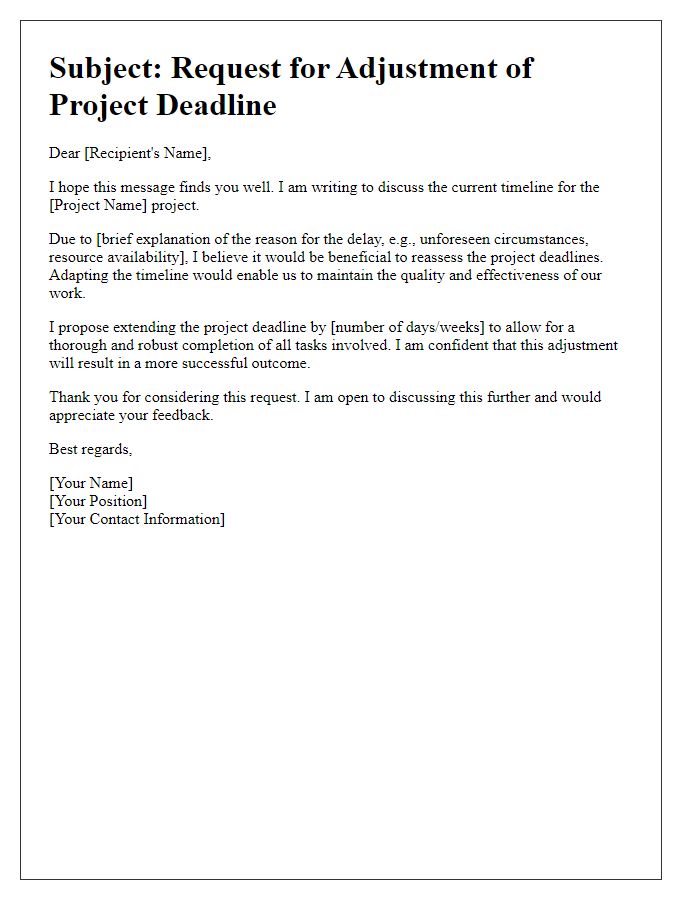
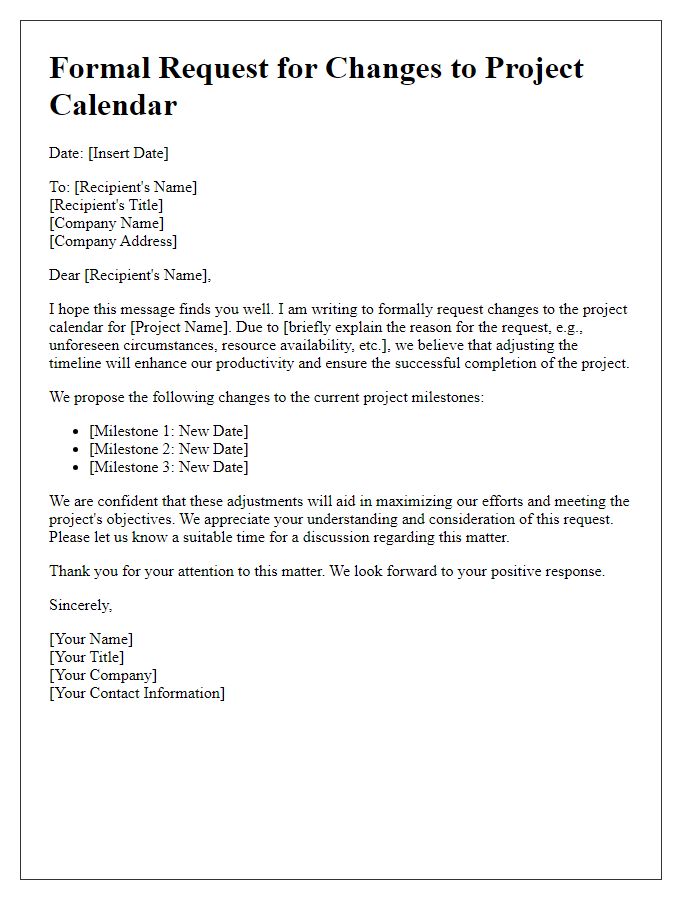
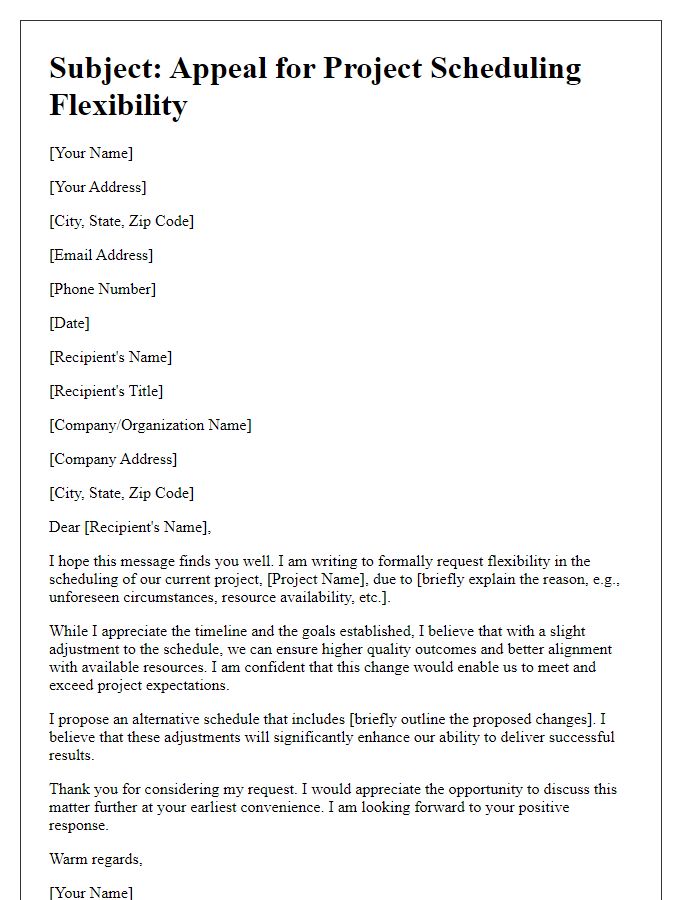
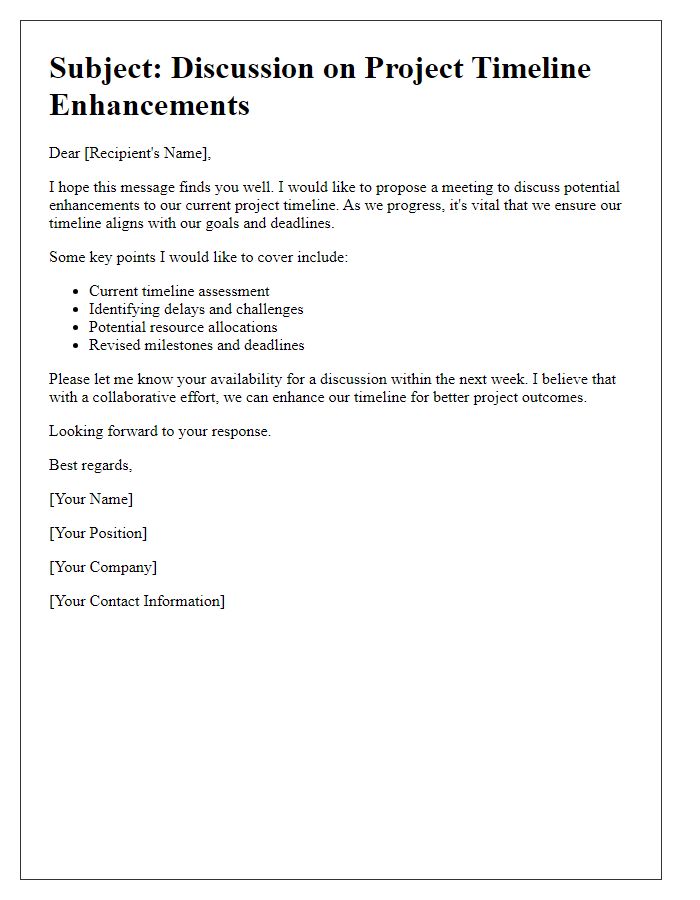


Comments